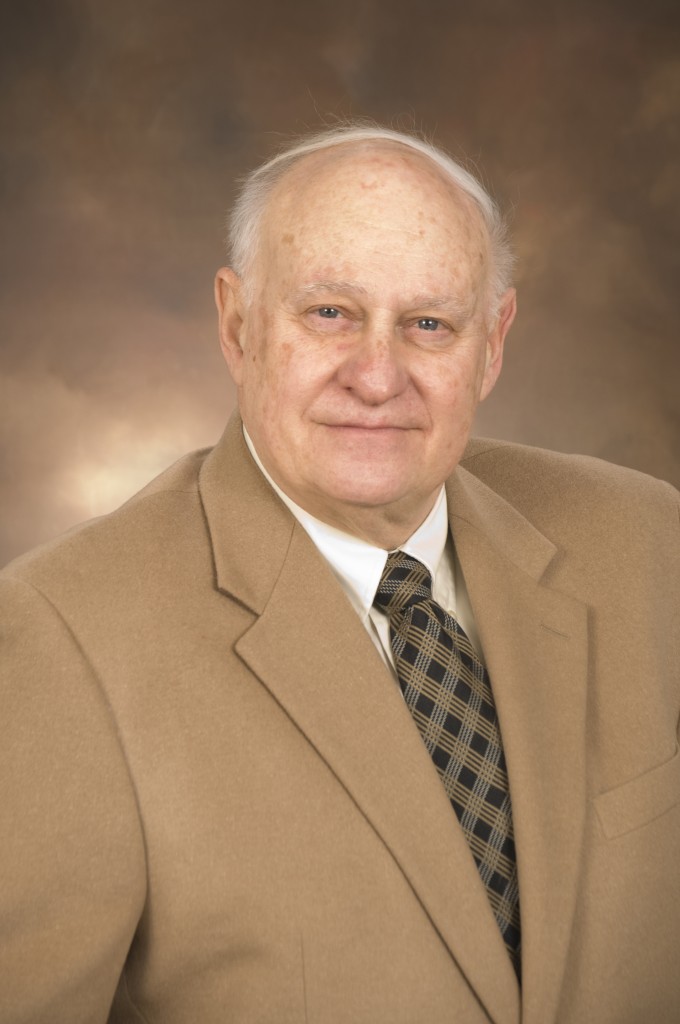Keynote Speakers – 2024 IEOM Washington D.C. Conference
Tuesday, June 4, 2024
Conference Leadership Team Remarks: Tuesday, June 4, 2024, 10:00 – 10:20 am
Conference Chair Remarks
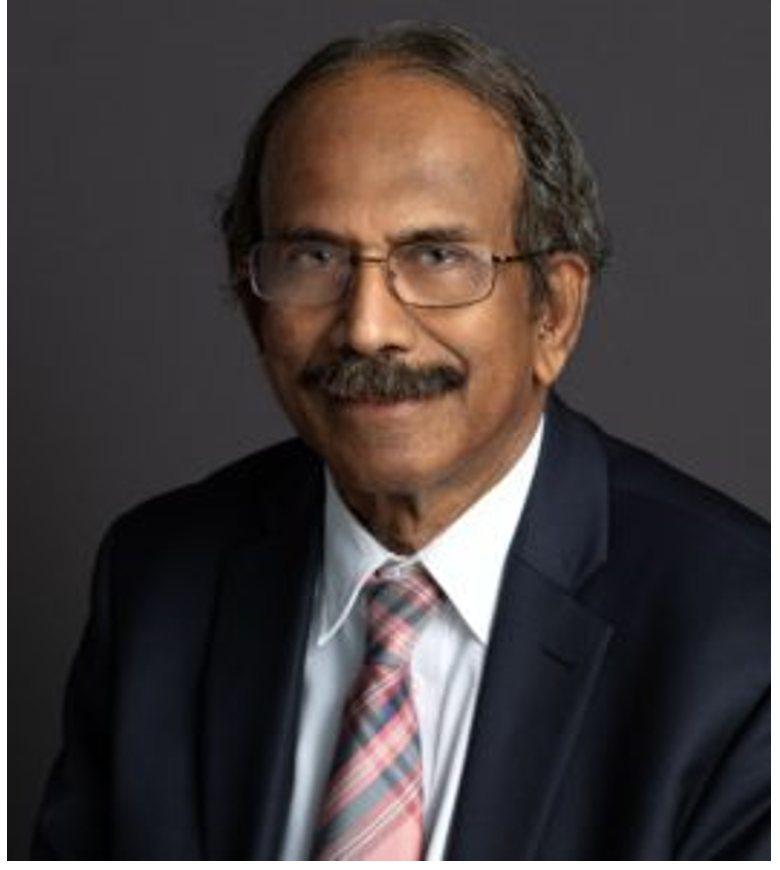 Dr. Devdas Shetty, PhD, PE, Fellow ASME, IEOM
Dr. Devdas Shetty, PhD, PE, Fellow ASME, IEOM
Dean and Professor
School of Engineering and Applied Sciences
University of the District of Columbia
Washington, DC, USA
Dr. Devdas Shetty serves as the Dean of the School of Engineering and Applied Sciences (SEAS) at the University of the District of Columbia, and he is also a tenured Professor of Mechanical Engineering. Dr. Shetty is a world-renowned scholar, educator, and outstanding academic administration leader whose career spanned more than 35 years in several institutions.
Prior to joining UDC in 2012, he served as the Dean of Engineering at Lawrence Technological University, Michigan, and served as Dean of Research and Vernon D. Roosa Distinguished Professor at the University of Hartford, Connecticut. At the University of Hartford, he was the founding Director of the Engineering Applications Center, and he was responsible for creating agile research partnerships with more than 50 companies. He also held faculty positions at the Albert Nerkin School of Engineering at the Cooper Union in NY.
Dr. Shetty has an outstanding academic record of scholarship which includes authorship for 3 textbooks in engineering used worldwide. He has authored over 250 scientific articles and journal papers and proceedings. He holds seven patents and numerous as grants as PI. His research work is cited for original contribution to the integration of mechatronics in advanced manufacturing, creating new approaches to surface finish measurement, achievements in product design and cutting-edge curriculum of integrating engineering design with humanities and social sciences.
Dr. Shetty is a Fellow of the American Society of Mechanical Engineers (ASME), Fellow of Industrial Engineering and Operation Management Society (IEOM). Major honors include BEYA 2021 Presidential Award for STEM Education, James Frances Bent award for Creativity, the Edward S. Roth National Award for Manufacturing from the Society of Manufacturing Engineers, American Society of Mechanical Engineer Faculty Award, and Society of Manufacturing Engineers Honor award, Lifetime award from IEOM. He also received the 2019 Honorable Ronald H Brown Distinguished Leadership Award from the University of the District of Columbia. He is an elected member of the Connecticut Academy of Science and Engineering.
Dr. Shetty has extensive experience in leading accreditation, increasing enrollment, and leading strategic planning initiatives. During his tenure at UDC, Dr. Shetty provided leadership in securing more than 30 million dollars in grants and in establishing several federally funded research centers. Under his leadership, SEAS made advances in increasing student success outcomes, launched many new academic programs and improved the academic ranking of the programs.
Remarks from IEOM Society International
Professor Donald M. Reimer
Chief Operating Officer
IEOM Society International
Southfield, Michigan, USA
Donald M. Reimer is an adjunct faculty at the A. Leon Linton Department of Mechanical Engineering in College of Engineering at Lawrence Tech in Southfield, Michigan. He coordinates the Certificate of Entrepreneurial Engineering Skills. Mr. Reimer holds a Bachelor of Science degree in Industrial Management from Lawrence Technological University and a Master of Arts degree in Political Science from University of Detroit/Mercy. He is a Certified Management Consultant with over 35 years of experience in working with closely-held businesses. He has taught courses in entrepreneurship, strategic management, corporate entrepreneurship and innovation for engineers. Mr. Reimer is a member of the Lawrence Tech Kern Campus Committee, Coordinator of the Lawrence Tech Innovation Encounter. He is faculty Advisor of the Collegiate Entrepreneurs’ Organization. Mr. Reimer serves as a Kern Fellow of The Kern Family Foundation, Co-Direct of the Coleman Fellows Program, member of the National Collegiate Entrepreneurs’ Organization Faculty Advisory Council and is a member of the American Society of Engineering Education.
He has operated his own consulting company – The Small Business Strategy Group for 23 years. He published numerous articles on small business, entrepreneurship and strategic thinking. He has received several awards and recognition by local, state and federal agencies for his work in entrepreneurship and minority business development. Mr. Reimer served as member of the Minority Economic Development Committee of New Detroit. Mr. Reimer is member of the Small Business Advisory Council of the Detroit Regional Chamber of Commerce. Mr. Reimer is a member of Advisory Board of the Milwaukee Junction Small Business Assistance Center. He is also a member of the Applied Innovation Alliance. Mr. Reimer serves as a KEEN Fellow for The Kern Family Foundation and is a member of United States Association of Small Business and Entrepreneurship.
Opening Keynote I: Tuesday, June 4, 2024, 10:20 – 11:00 am
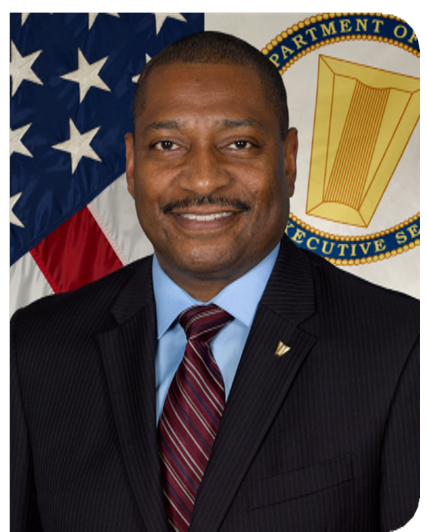 Eric L. Moore, Ph.D.
Eric L. Moore, Ph.D.
Deputy to the Commanding General
U.S. Army Combat Capabilities Development Command
Dr. Eric L. Moore is the Deputy to the Commanding General (DtCG), U.S. Army Combat Capabilities Development Command on Aberdeen Proving Ground, Maryland. As the DtCG, he provides strategic direction for the organization and serves as the catalyst for research, development, and engineering initiatives across the command. Dr. Moore also serves as the Senior Civilian for a workforce of over 14,000 personnel.
Moore was appointed to the Senior Executive Service on August 21, 2016.
In his prior assignment, Moore served as Director of the DEVCOM Chemical Biological Center, formerly known as the Edgewood Chemical Biological Center. His first assignment as an SES was the ECBC Director for Research and Technology.
An expert in chemical and biological defense programs and medical countermeasures, Moore served in multiple positions at the Defense Threat Reduction Agency including Chief of the Advanced and Emerging Threat Division, and Chief of the Basic & Supporting Science Division.
Moore’s educational achievements include a doctorate in neurophysiology from Meharry Medical College in 1992; and a bachelor’s degree in biology from Fisk University in 1987. He was commissioned as a 2nd Lieutenant through the U.S. Army R.O.T.C. at Vanderbilt University in 1987.
His civilian and military awards include the Department of Defense Distinguished Civilian Service Award, 2016; Defense Meritorious Service Medal (1 Oak leaf cluster); Joint Service Commendation Medal; Army Commendation Medal; and the National Defense Service Medal (1 bronze star).
Keynote II: Tuesday, June 4, 2024, 11:00 – 11:40 am
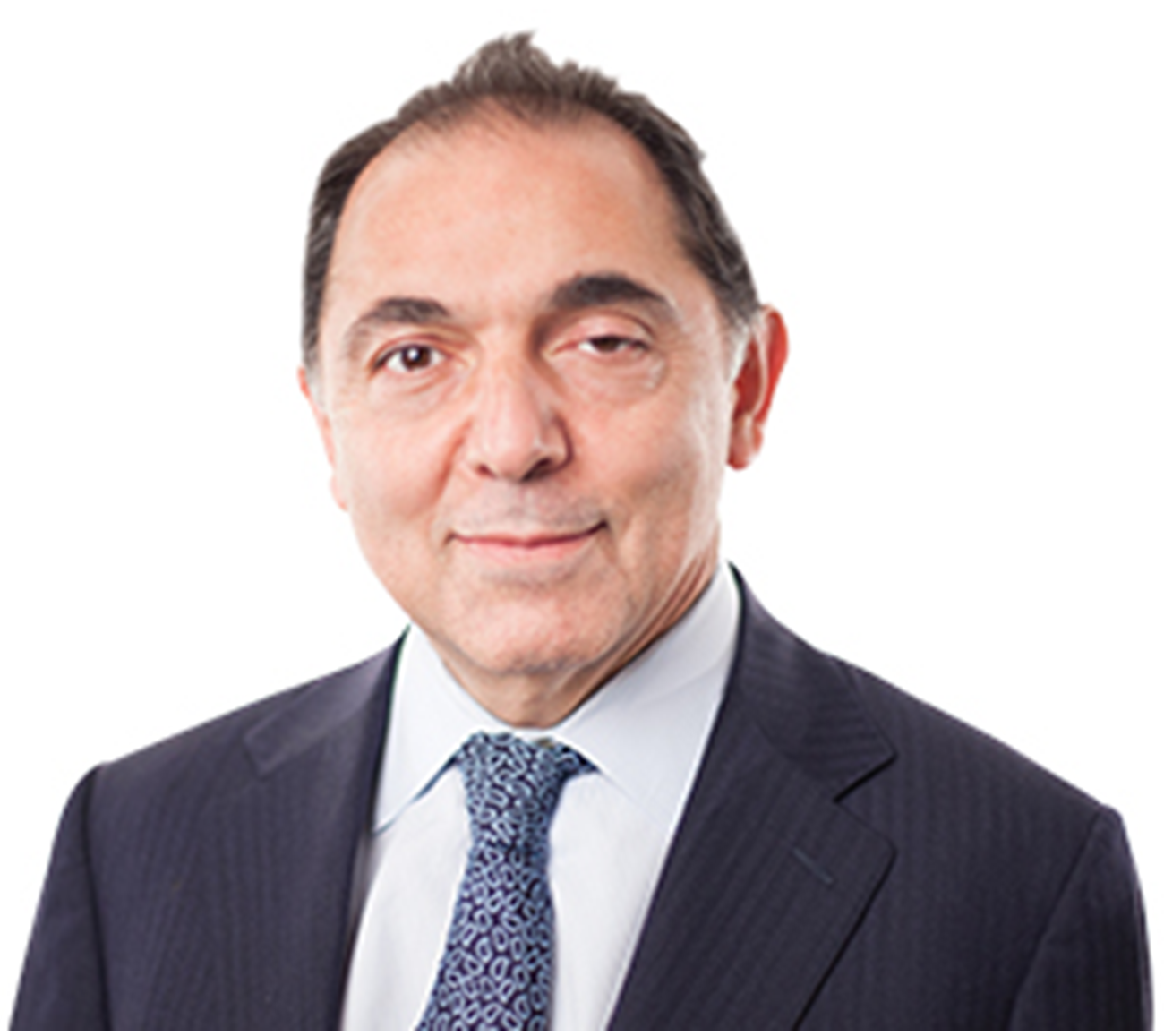
Javad Mokhbery
CEO
FUTEK Advanced Sensor Technology, Inc.
Irvine, California, United States
By all accounts, Javad Mokhbery is a brilliant man. Without any financial help, he built his company, FUTEK Advanced Sensor Technology, Inc., from one bed room apartment to be the leading manufacturer of sensors for a wide variety of industries throughout the world. As a mechanical engineer and innovator, he stays ahead of the trends and positions his company as a pioneer within the evolving industries that he serves. Today, his sensors are used on drills deep down in the Earth for the oil and gas industry and on the surface of Mars where NASA’s rover Curiosity has been exploring since 2012 and making new discoveries each day with the help of FUTEK’s technology. FUTEK sensors are also used in the manufacturing process of the world’s leading smartphones and wearable devices. Indeed, he is extremely smart.
Yet this is not what makes Javad an effective entrepreneur. Pure intelligence, he says, only gets one so far in business. Even if you boast the top mind in your field and balance it with a knack for business and science, you are still missing a huge piece of the equation – emotional intelligence (EQ).
Javad says his EQ has been his key to entrepreneurial success. It’s not something that can be taught through a traditional education, and it’s not necessarily something one is born with either. Rather, Javad credits his unique upbringing and life experiences.
Born in Iran in 1952, Javad was raised by religiously conservative parents, and his father was a successful businessman. By the early 1960s, Javad knew he wanted to study in America, but his parents did not approve. Refusing to take “no” for an answer, he began recruiting random tourists off the street and invited them over for lunch or dinner to expose his folks to the West and show them that foreigners weren’t bad while making friends, practicing English and learning their culture. Then again, we are talking about 1960s; there were no internet or social media like today.
The strategy forged a special kind of EQ in Javad, which serves him to this very day. As an Iranian pre-teen, he said that conversations with strangers from places like Switzerland and Germany helped him empathize and connect with people from all walks of life. He was able to connect with his parents in a powerful way as well. Emotional Intelligence is largely about knowing what other people want or need, and Javad pulled this off in an unusual fashion. When he was 19, they agreed to let him go study in England.
In January 1974, he moved from London to Detroit to advance his education first at DIT (Detroit Institute of Technology). Then at OCC (Oakland Community College) and finally at the Lawrence Institute of Technology (LIT). The move was drastic. He wound up in some of the most dangerous areas of the city and worked there as an ice cream salesman to pay for his education. Though he easily could have, Javad never asked his parents for money. Instead, he worked hard and used his EQ to forge relationships in some of the most undesirable neighborhoods of Detroit to pay for this stage of his education.
Upon graduating from LIT, Javad worked his way up at sensor Production Company in Detroit called GSE. With no green card but with practical training permit from the government, he started in 1979 as the lowest paid engineer at the company and left in 1985 as the highest paid engineer, just below his manager. Then he moved to Southern California to another sensor company in Cerritos called Transducers Inc. and later worked primarily as a contractor to aerospace manufacturers at Rockwell International in Downey, including NASA’s Space Shuttle program.
In 1988, Javad Used up all his saving to buy his first house in Aliso Viejo Ca, got married, ended his journey and his full-time job at Rockwell International and committed to FUTEK with his brother Mohammad Mokhberi, who joined him from Sweden. Upon Javad’s Arrival in California, FUTECH was originally founded in 1985 , which stands for “future technology,” They built the company from the ground up with no money and no commercial loans. The only financing Javad had available to him was his home equity loan on his house in Aliso Viejo and credit cards.
For seven years they struggled, but by the mid-1990s FUTEK had caught its stride, and it was innovating sensors ahead of any other manufacturer in the space. Javad said FUTEK has been successful because of its ability to foresee where other industries are going and develop a sensor for that new direction before the technology needing the sensor actually exists. This approach which follows Blue Ocean Strategy as well as Bayesian Strategy has enabled FUTEK to make its own markets and have huge sectors essentially all to themselves.
The result has been almost two decades of exponential growth. FUTEK employs over 140 people at its Irvine headquarters, where it develops and manufactures all of its sensors. Javad takes great pride in making all of his products in the U.S., and he uses all American-sourced raw materials as well. Not only does he not buy components from China, which is done by many other players in his market, but as a global U.S. company he sells many sensors to China at a premium.
FUTEK’s sensors have a great reputation with high volume medical, aerospace and automation OEM accounts maintaining a zero field reject rate, with the mindset that “Failure is not an option“, something that is extremely rare at this level of precision manufacturing. However, an even greater source of pride for Javad is the fact that FUTEK has never laid off an employee since inception. Even during a lean period following implementation of Oracle Business Suite in 2009, FUTEK kept everyone on staff even though the orders had temporarily dried up. He puts machinist and skilled technicians to work doing other things around the office, such as landscaping, just to keep them productive until activities picked up again.
He insists on a “quality culture” as opposed to “quality control,” which gives manufacturing ownership to his team and yields FUTEK’s coveted zero field rejection rate. The dedication to his team is part of Javad’s Emotional Intelligence philosophy towards entrepreneurship, and it guides different management strategies that he’s deployed at FUTEK.
Keynote III: Tuesday, June 4, 2024, 11:40 am – 12:20 pm
 Dr. Vivek Dwivedi
Dr. Vivek Dwivedi
Associate Division Chief for the Mechanical Systems Division (MSD)
NASA Goddard Space Flight Center (GSFC)
Vivek Dwivedi is the Associate Division Chief for the Mechanical Systems Division (MSD) at NASA’s Goddard Space Flight Center (GSFC). MSD is a multi-discipline organization with 250 Civil Servants working on awe-inspiring discoveries through collaboration on all of Goddard’s missions, from concept through development, test and flight. He has supported the Mechanical Systems Division since 2010 holding multiple leadership positions including Division Chief Technologist and Associate Branch Head of the Thermal Engineering Branch. Prior to that he worked as a contractor at GSFC as a space science visualization specialist from 1996-2010.
As a technologist, Vivek is the Agency subject matter expert in Atomic Layer Deposition (ALD) a thin film nanomanufacturing process that allows for the conformal deposition of metals and metal-oxide/nitride/fluoride/etc. on substrates that range from flat to high aspect ratio topographies. Utilizing this nascent technology, used exclusively for the semiconductor industry, he has led and managed interdisciplinary teams (internal and external to NASA) to investigate and solve several challenges that are applicable in the Office of Chief Technologist’s Technology Roadmap. Vivek’s technology development efforts include charge mitigating coatings on the MISSE ISS program as well as the development of novel mirror coatings for future multi-wavelength science flagship missions.
Dwivedi has a Ph.D., M.Eng. and BS in Chemical Engineering from University of Maryland, College Park (2010, 2007, 1999) as well as a MS in Computer Science from Bowie State University (2002).
Keynote IV: Tuesday, June 4, 2024, 12:20 pm – 1:00 pm
 Mr. Matthew J. Stepura
Mr. Matthew J. Stepura
Systems Engineering and Test Department Head
Naval Air Systems Command
Mr. Stepura currently serves as the Systems Engineering and Test Department Head in Naval Air Systems Command (NAVAIR).
Joining NAVAIR in 1997, Stepura started his career in the flight simulation group. He designed control loading (force-feel) systems for high fidelity aircraft flight simulators, including both fixed wing and rotary wing platforms across the USN/USMC inventory.
In early 2000, Stepura was selected to attend USN Test Pilot School. In 2001 he graduated as a rotary wing project engineer, Class 119. As a flight test engineer, Stepura has worked multiple rotary wing programs. He has been responsible for planning, executing and reporting of envelope expansion, mission systems, and sensor testing of multiple USN/USMC rotary wing aircraft.
In 2008 Stepura was selected as the Lead Test Engineer (LTE) of the USN’s MH-60R program, responsible for all matters of the MH-60R test program. Since his initial selection to lead test engineer in 2008, Stepura has also served as LTE of NAVAIR’s CH-53K Super Stallion and MQ-4C Triton programs. In 2017, Mr. Stepura transitioned to be the Assistant Program Manager for Systems Engineering in PMA-268 (the US Navy’s Unmanned Carrier Aviation Program Office). In this capacity, he helped lead the team selecting the US Navy’s first production, carrier based unmanned aerial vehicle, the MQ-25.
Following his position in PMA-268, Stepura was selected as the Assistant Program Executive Officer for Test and Evaluation (APEO T&E) in PEO, Common and Commercial Systems. Stepura led the test and evaluation branch for multiple program offices, as well as, testing of rapid development, deployment, and experimentation programs. Following that assignment, he also served as the APEO T&E in PEO Tactical, where he led Test and Evaluation efforts the Navy’s carrier based aircraft.
In 2023 Stepura was selected to his current position, the NAVAIR Systems Engineering and Test (SET) Department Head. In this capacity, Mr. Stepura is responsible to provide engineering and test leaders who head the teams that develop and deliver effective, affordable and safe designs of Naval Aviation platforms and systems, throughout their lifecycle. In addition, the SET Department designs and deploys digital tools designed to improve the efficiency of our workforce and develops NAVAIR engineering and test policy.
Stepura holds Bachelor of Science in Mechanical Engineering and Master of Engineering degrees from the University of Hartford, as well as, a Master of Science in Aerospace Engineering from the Florida Institute of Technology. On Nov 23, 2010, Stepura and his co-inventors were Awarded Patent 7,839,304 Method and System for Alerting Aircrew to Unsafe Vibration Levels.
In September 2017, Stepura was awarded the Navy’s Meritorious Civilian Service Award for his leadership of the MQ-25 Triton Integrated Test Team.
1:00 pm Lunch Welcome Address
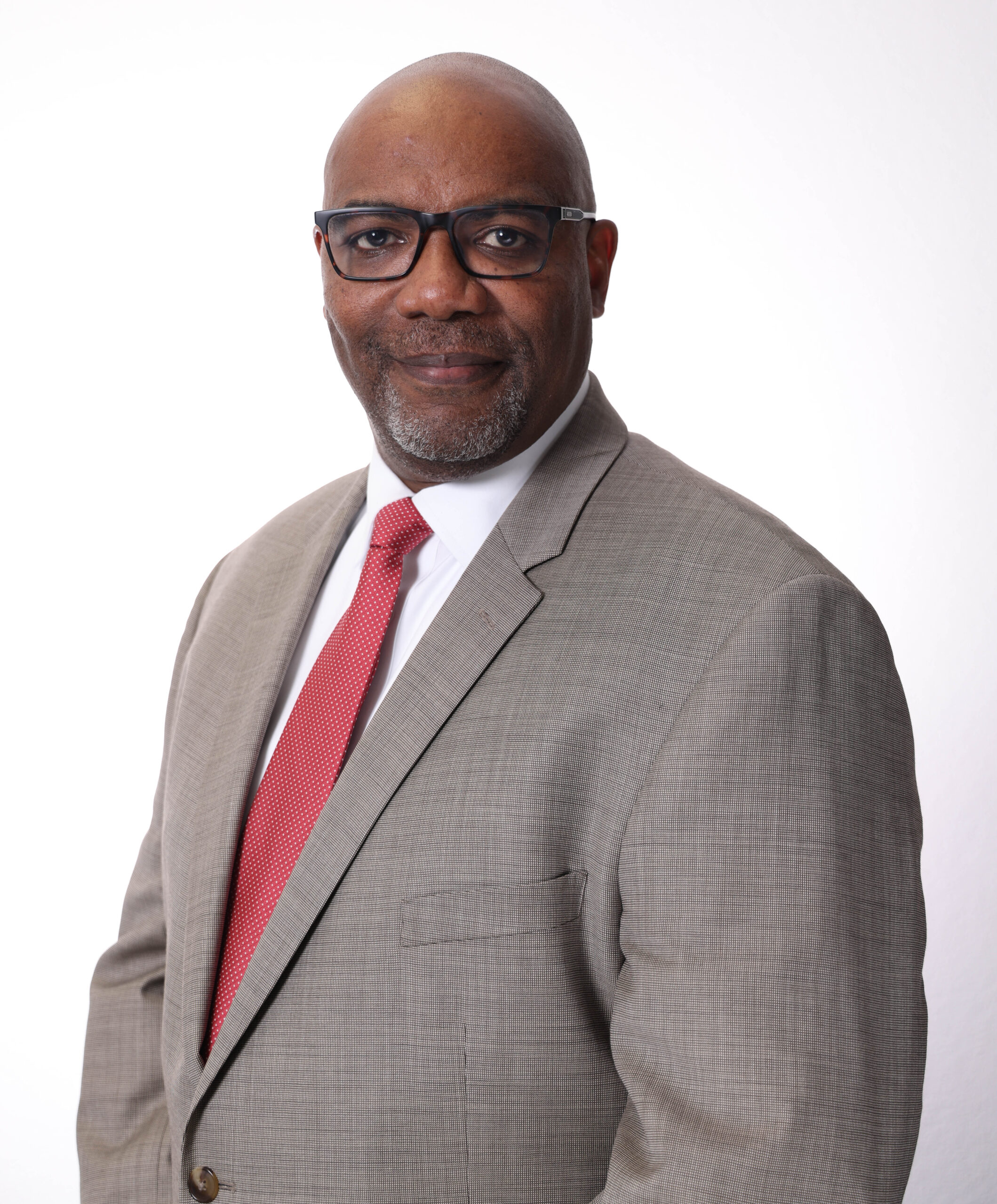 Maurice D. Edington, Ph.D.
Maurice D. Edington, Ph.D.
President
University of the District of Columbia
Maurice D. Edington, Ph.D., began his tenure as the 10th President of the University of the District of Columbia in August 2023. Edington is an accomplished scientist and educator who brings over 20 years of higher education leadership experience to the university, including a proven track record of improving student retention and graduation rates.
Edington most recently served as the Executive Vice President and Chief Operating Officer at Florida A&M University (FAMU), where he guided strategy to improve institutional outcomes on key performance indicators and to sustain operational excellence. Under Edington’s steady hand, FAMU climbed into the top 100 public national universities in the U.S. News & World Report rankings and became the nation’s highest-ranked public HBCU, a designation it has held for the past five years.
As Provost and Vice President for Academic Affairs (2018-2022), Edington was responsible for all matters pertaining to academic programs, activities and services in FAMU’s 14 colleges/schools, including institutional and specialized accreditation activities.
Edington worked closely with FAMU’s President and Board of Trustees as the University’s chief strategist to establish and advance the University’s strategic priorities. His leadership helped FAMU boost student success outcomes, launch several new degree programs and experience its highest performance (in 2021 and 2023) on Florida’s Performance-Based Funding Model.
Edington is a physical chemist by training with a research specialty in ultrafast laser spectroscopy. He also conducts research and provides training to faculty in STEM education.
Edington received a B.A. in chemistry from Fisk University and a Ph.D. in physical chemistry from Vanderbilt University. He also completed postdoctoral studies at Duke University, where he was a National Institutes of Health National Research Service Award Postdoctoral Fellow.
Edington is married to UDC Tonya Barge Edington and is the father of Gabriella Edington, M.D.
Wednesday, June 5, 2024
Keynote V: Wednesday, June 5, 2024, 10:00 – 10:40 am
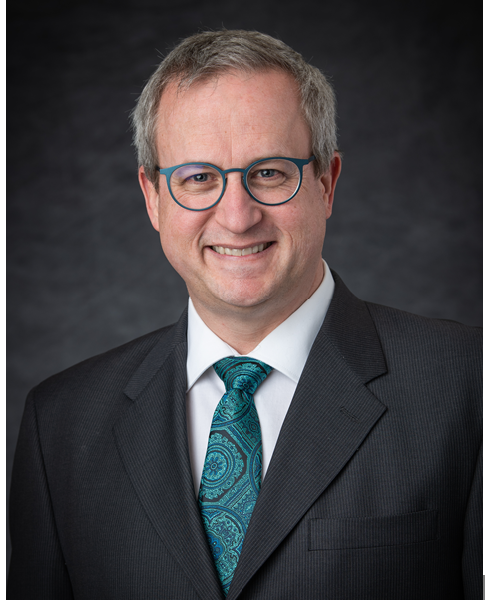 Jonathan Conradt
Jonathan Conradt
Principle AI Researcher – Amazon
Reston, Virginia
United States
Jonathan Conradt is a lecturer for Amazon’s Machine Learning University. (He is not representing Amazon and his presentation and comments are his own.) He creates and teaches curriculum on machine learning and artificial intelligence. He was a director at eBay where he was responsible for machine learning systems for Internet marketing. At Google, he was an engineering product manager for the Chrome web browser, and responsible for the Mac and Linux releases. At Microsoft he was a product manager for a television over IP product. He has eight patents related to ML and marketing, and was one of the creators of the popular management tool StrengthsFinder. Jonathan has volunteered and deployed to support hurricane recovery with the American Red Cross and is currently the treasurer for the Washington D.C. chapter of the Internet Society (ISOC).
Keynote VI: Wednesday, June 5, 2024, 10:40 – 11:20 am
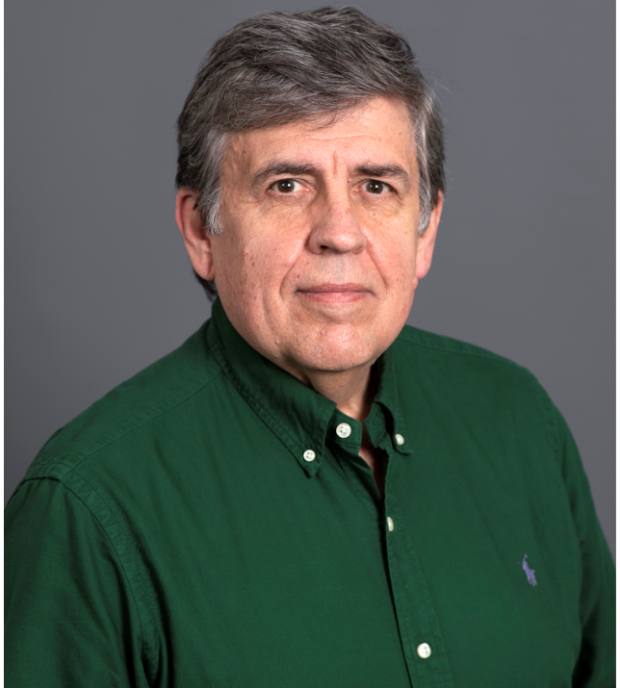 Dr. Christopher Cox, P.E.
Dr. Christopher Cox, P.E.
Faculty, Construction Management
College of Engineering and Technology
Western Carolina University
Cullowhee, North Carolina, USA
Christopher Cox, Ph.D., P.E., is currently with the Construction Management in the College of Engineering and Technology at Western Carolina University in Cullowhee North Carolina, USA. Prior to joining the faculty of the Kimmel School Dr. Cox spent 38 years in the energy industry. During his career he held a variety of roles in engineering, corporate planning and strategy, mergers and acquisitions, production operations, and project management. He has lived in the Middle East (United Arab Emirates, Qatar and Kuwait), North Africa (Egypt and Tunisia), Australia, and several US locations (Alaska, Illinois, and Texas). In addition to these residential locations, he worked in many other countries. Dr. Cox has a B.S. in Chemical Engineering from Tulane University, M.S. in Petroleum Engineering from the University of Houston, an MBA from Alaska Pacific University, and Ph.D. in Civil Engineering from Texas A&M University. He is a licensed Professional Engineer.
11:20 – 11:40 am Networking Break
Keynote VII: Wednesday, June 5, 2024, 11:40 am – 12:20 pm
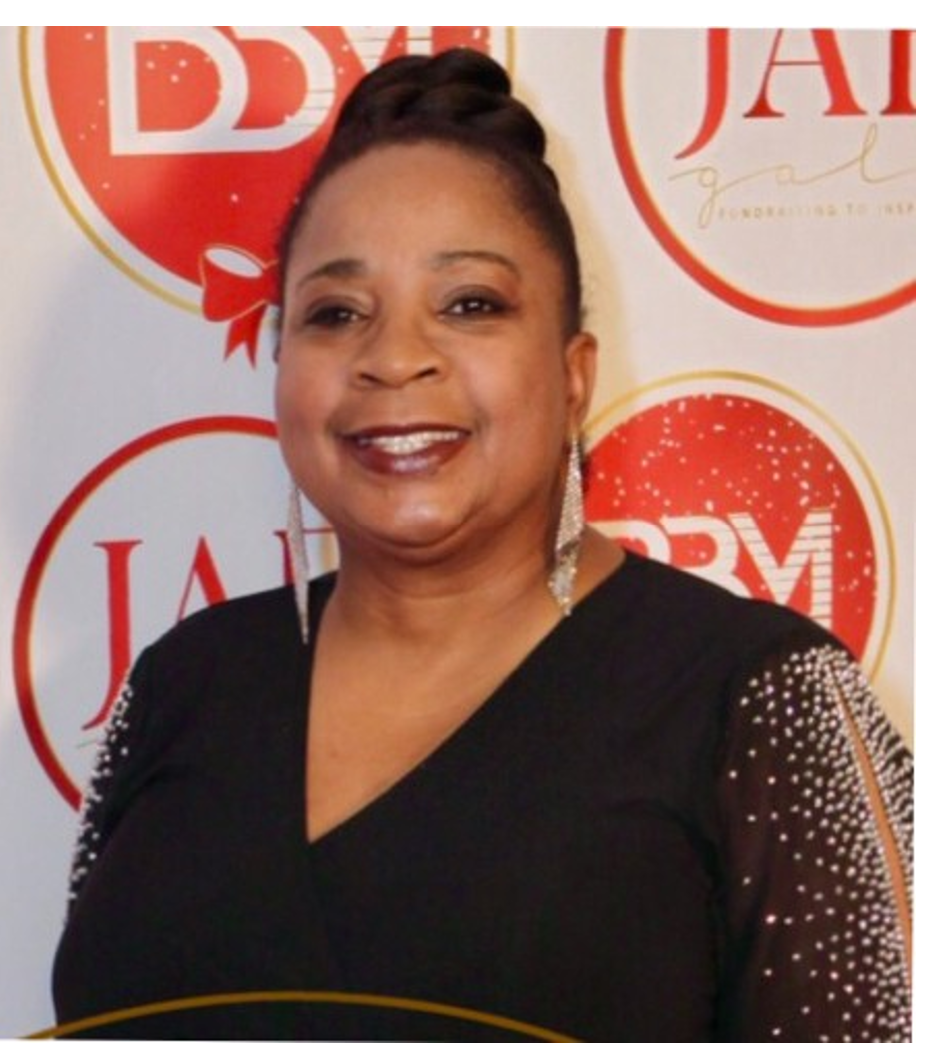
Rachel R. Hughes, MBA
Department Manager, Acquisition Strategy and Management
MITRE Corporation
Topic for keynote: Prioritizing Business Considerations in Systems Engineering
Ms. Rachel Hughes is the Department Head, leading 90+ acquisition staff, for The MITRE Corporation’s Acquisition Innovation Center’s Acquisition and Program Management Department, where she has provided leadership and subject matter expertise in acquisition and contracting strategies, program oversight, and strategic sourcing methodologies for over fifteen years. Rachel has 30+ years of collective and hands-on experience and leadership in acquisition, supporting the Intelligence Community, Department of Defense, Department of Justice, Veteran Affairs, State Department, and numerous other Federal Agencies.
She is highly sought after for her thought leadership and innovative approaches, her ability to create practical and reusable products for sponsors, and her timely and impactful decision-making support. She has been a regular presenter on various topics at the National Contract Management Association’s (NCMA) Continuing Education Lecture Series, World Congress, and Government Contracting Management Symposium.
Recently, Rachel has played a crucial role in helping the Federal Government develop Cyber Supply Chain Risk Management requirements to address performance expectations, proposal requirements, and continuous monitoring expectations. She is currently focused on defining better contractual requirements for Software Bill of Materials and exploring the role of Artificial Intelligence in acquisitions. Rachel is a retired Army Military Police Officer, and she holds an MBA with a concentration in Acquisition Management as well as a Bachelor of Arts in Economics.
Keynote VIII: Wednesday, June 5, 2024, 12:20 pm – 1:00 pm
 Khershed P. Cooper, Ph.D., FASM, FSME
Khershed P. Cooper, Ph.D., FASM, FSME
Program Director
Advanced Manufacturing Program
Division of Civil, Mechanical and Manufacturing Innovation (CMMI)
Directorate for Engineering (ENG)
National Science Foundation (NSF)
Alexandria, VA 22314, USA
Dr. Khershed P. Cooper is a Program Director for Advanced Manufacturing in the Civil, Mechanical and Manufacturing Innovation (CMMI) Division of the Engineering (ENG) Directorate at National Science Foundation (NSF). He directs basic research activities in advanced manufacturing, nanomanufacturing and associated Manufacturing USA Institutes and NSF-DFG collaborations. He is a disciplinary program officer for the Engineering Research Centers (ERCs), and a co-program officer for cross-cutting programs – Critical Aspects of Sustainability (CAS), Emerging Frontiers in Research and Innovation (EFRI), Network for Computational Nanotechnology (NCN), National Nanotechnology Coordinated Infrastructure (NNCI) and Accelerating Research through International Network-to-Network Collaborations (AccelNet). Recently, he also served as a program officer in NSF’s Office of International Science and Engineering (OISE) on detail, where he developed collaborations with funding agencies in partner countries. Dr. Cooper is an NSF representative for National Science and Technology Council (NSTC)’s Nano Science Engineering and Technology (NSET) Sub-committee, which frames the National Nanotechnology Initiative (NNI) Strategic Plan. He represents NSF for NextFlex (flexible hybrid electronics) and REMADE (circular economy) Manufacturing Innovation Institutes. Prior to joining NSF, Dr. Cooper was Program Officer for Manufacturing Science at the Office of Naval Research (ONR) and, concurrently, a Senior Research Metallurgist at the Naval Research Laboratory (NRL). His earlier appointments were Supervisor of the Materials Research Group at Geo-Centers, Inc and Scientist II at Olin Metals Research Laboratory. Dr. Cooper received his MS and PhD from University of Wisconsin–Madison and his BTech from IIT—Bombay. He has presented over 200 invited and over 70 contributed talks at national and international conferences, meetings, and workshops. He has nearly 150 publications, edited one book and holds one patent. He has sponsored and participated in international studies in various emerging areas of advanced materials and advanced manufacturing. He is a Fellow of SME and ASM International and a recipient of ASM International’s Burgess Memorial Award.
Thursday, June 6, 2024
Keynote IX: Thursday, June 6, 2024, 10:00 – 10:40 am
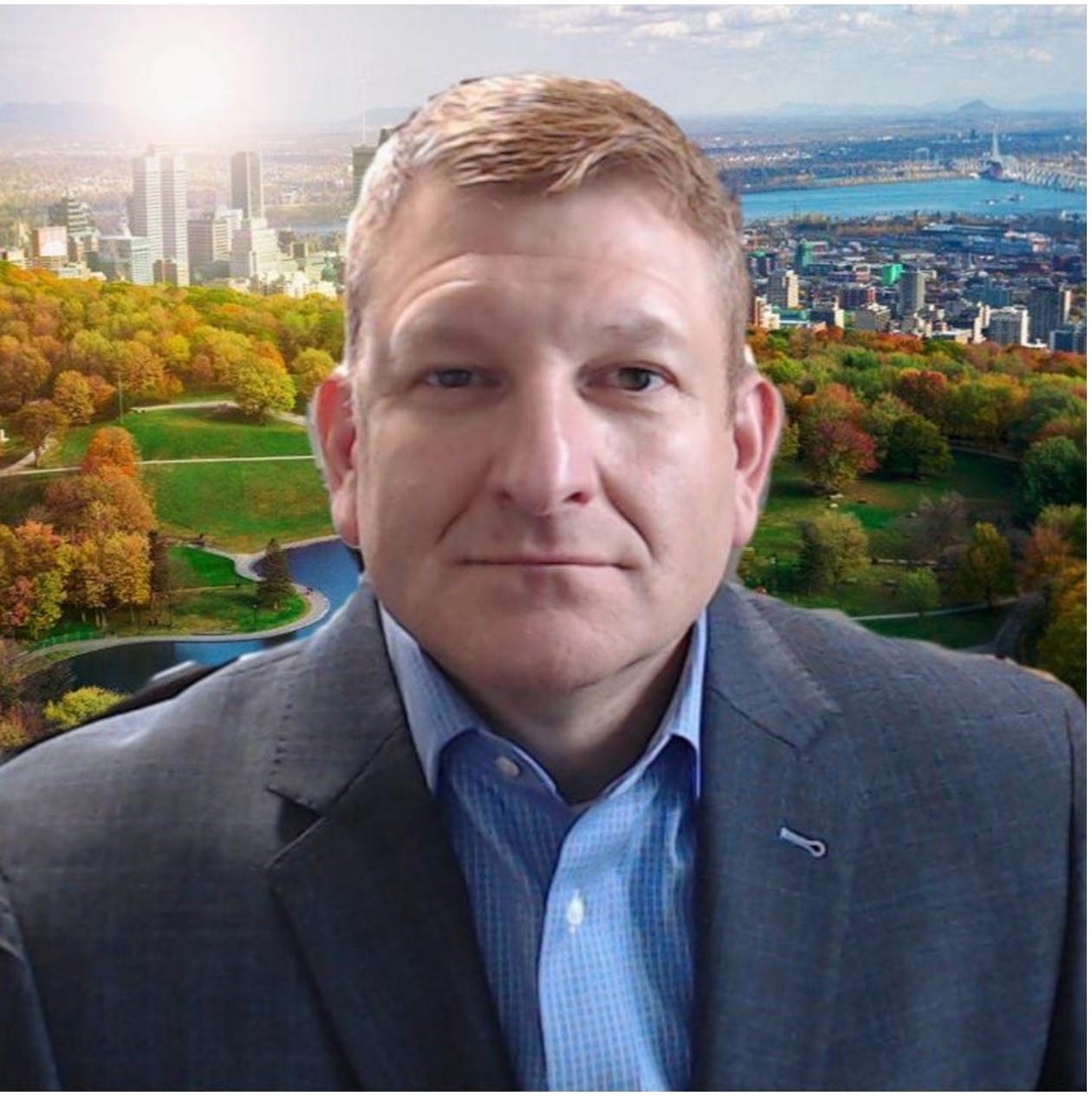
Robert J. Wenier
Global Head of Cloud and Infrastructure
AstraZeneca Pharmaceuticals LP
Gaithersburg, Maryland, USA
Rob is the Global Head of Cloud and Infrastructure for AstraZeneca and serves as a member of its IT Leadership Team. He has both strategic and budgetary oversight governing AstraZeneca’s global hosting and transport estate, including four hyperscalers and 8 datacenters: enabling the technology needs of more than 250k users, at 152 sites, across 147 countries – including 28 pharmaceutical manufacturing facilities (with 5 under construction). He brings over 25 years of experience designing, deploying, and managing web-scale, mission critical systems. Prior to joining AstraZeneca, Rob served as Northrop Grumman’s Chief Technologist for Cloud and Chief Cloud Architect, leading the company’s extensive adoption of cloud and cloud native technologies.
Rob began his career serving with the Judge Advocate Corps of the US Marine Corps and has held several varied and progressive technical and managerial leadership roles. For the past 14 years in particular, Rob has worked extensively with cloud services and technologies, spearheading the planning and execution of large-scale cloud adoption and migration efforts across a host of Fortune 500, multinational corporations. Rob holds a Bachelor of Science degree in Computer Technologies and Information Systems from the University of Mary Washington, and a Master’s of Business Administration from George Mason University.
Keynote X: Thursday, June 6, 20242, 10:40 am – 11:20 am
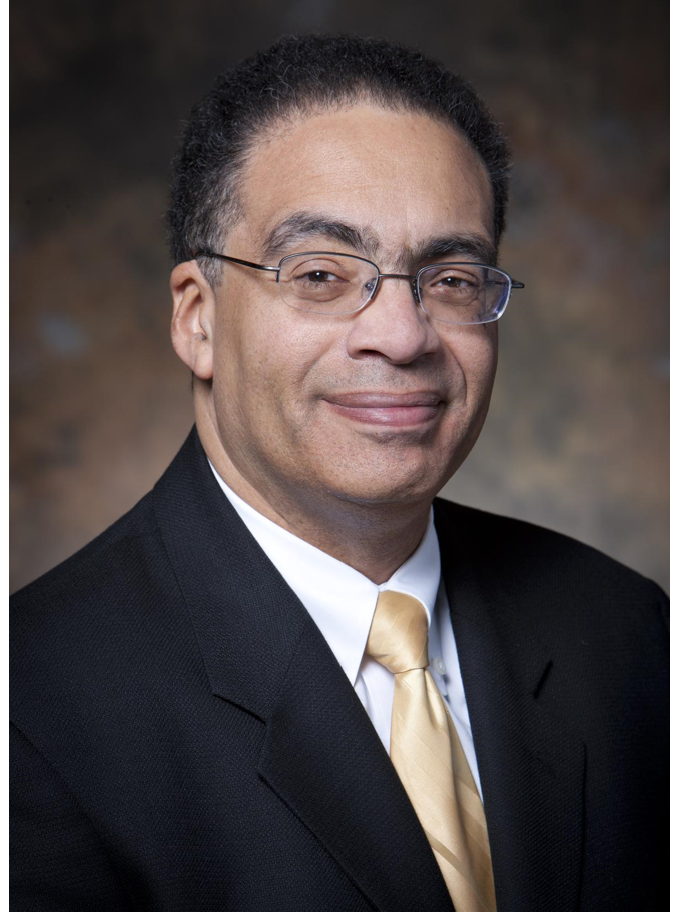 Victor R. McCrary, PhD
Victor R. McCrary, PhD
Vice President for Research
Office of University Research
Professor of Chemistry
The University of the District of Columbia
Vice Chair, National Science Board
Victor R. McCrary, Vice President for Research at the University of the District of Columbia, where he champions the growth, development, direction and oversight of the University’s research enterprise. He is a change agent and serial innovator, responsible for developing comprehensive, sustainable research strategies, fostering trans-disciplinary research, and expanding research programs via engagement with federal and state agencies and private entities. He has held similar research leadership positions at the Johns Hopkins University Applied Physics Laboratory, Morgan State University, and the National Institute of Standards and Technology, NIST. Dr. McCrary served two terms as the national president of the National Organization for the Professional Advancement of Black Chemists and Chemical Engineers (NOBCChE). He is a Fellow of the American Chemical Society. He received his doctoral degree in chemistry from Howard University in 1986, a master’s degree in engineering from the University of Pennsylvania in 1995, and a bachelor’s degree in chemistry from The Catholic University of America in 1978.
Dr. McCrary has authored and co-authored more than 60 technical papers and co-edited two books during his career at AT&T Bell Laboratories and NIST. He has received numerous honors and awards including co-recipient of the U.S. Department of Commerce’s Gold Medal in 2000 and the 2002 Percy Julian Award by the National Organization of Black Chemists and Chemical Engineers. In 2011, he was honored as Scientist of the Year by the Annual Black Engineer of the Year Award (BEYA) STEM Conference.
In October 2016, President Barack Obama appointed Dr. McCrary to serve on the National Science Board which oversees the National Science Foundation. He chaired a task force which recently produced the report, “The Skilled Technical Working: Crafting America’s Science and Engineering Enterprise”. In May 2020, he was elected as the Vice-Chair of the National Science Board and. On May 4, 2022, Dr. McCrary was re-appointed by President Joseph Biden to a six-year term on the National Science Board and elected to a second term as Vice Chair. He was elected to a third term in May 2024.
11:20 – 11:40 Networking Break
Keynote XI: Thursday, June 6, 2024, 11:40 am – 12:20 pm
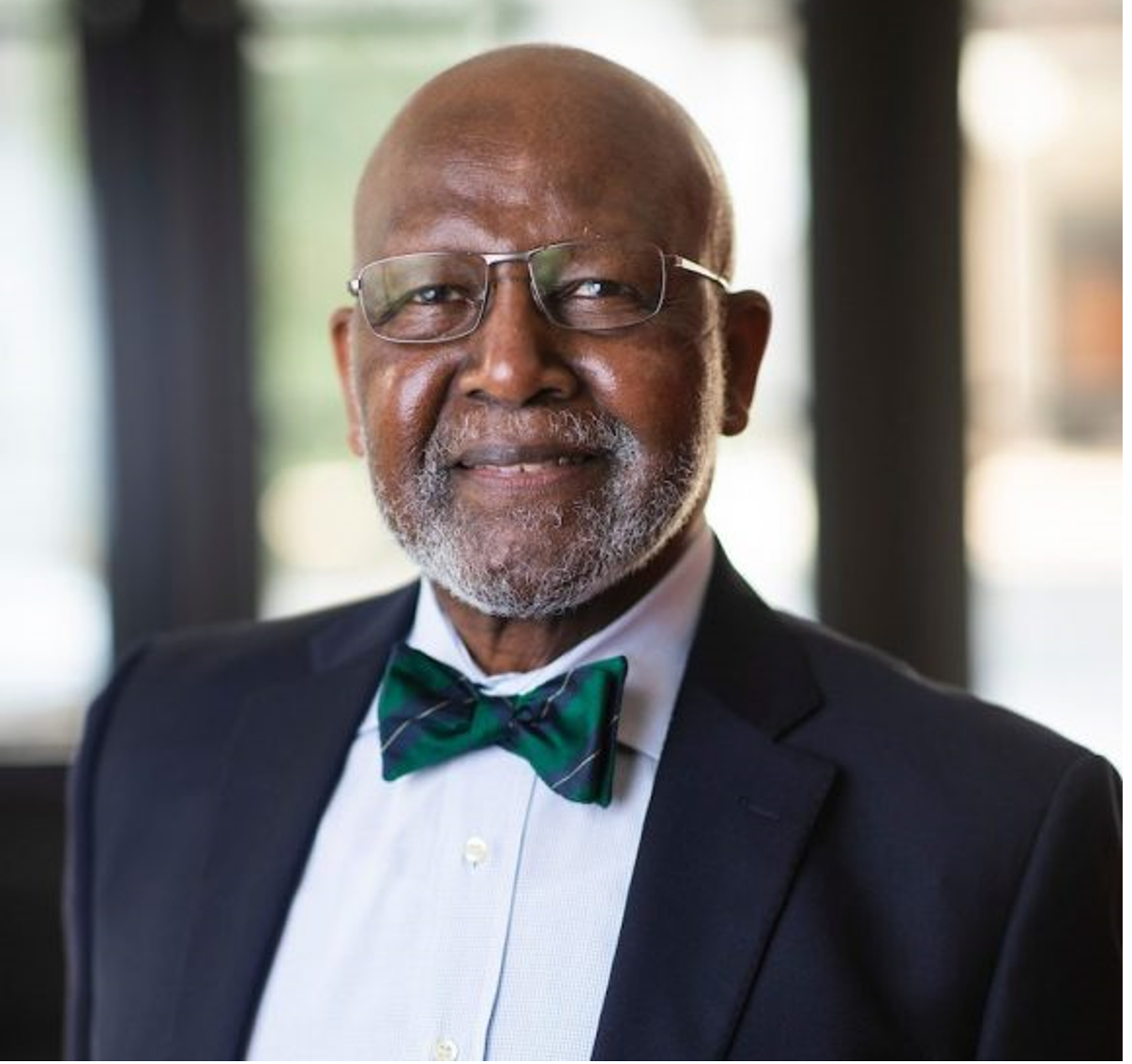 Dr. Wesley L. Harris
Dr. Wesley L. Harris
Charles Stark Draper Professor of Aeronautics and Astronautics
Massachusetts Institute of Technology (MIT)
Vice President of National Academy of Engineering
Wesley L. Harris is Charles Stark Draper Professor of Aeronautics and Astronautics and housemaster of New House Residence Hall at the Massachusetts Institute of Technology (MIT), where he was previously associate provost (2008–2013) and head of the Department of Aeronautics and Astronautics (2003–2008). He is Vice President, National Academy of Engineering and founding director, MIT Hypersonics Research Laboratory.
Before coming to MIT he was a NASA associate administrator, responsible for all programs, facilities, and personnel in aeronautics (1993–1995); vice president and chief administrative officer of the University of Tennessee Space Institute (1990–1993); and dean of the School of Engineering and professor of mechanical engineering at the University of Connecticut, Storrs (1985–1990). In his early career at MIT (1972–1985) he held several faculty and administrative positions, including professor of aeronautics and astronautics.
Dr. Harris has done academic research associated with unsteady aerodynamics, aeroacoustics, rarefied gas dynamics, sustainment of capital assets, and chaos in sickle cell disease, and made seminal contributions in each field In academia he worked with industry and governments to design and build joint industry–government–university research and development programs, centers, and institutes and transferred technology effectively. He is credited with more than 135 technical papers and presentations and has held a number of distinguished, endowed professorships and lectureships.
In addition, he has served as chair or member of various boards and committees of the National Research Council (NRC), National Science Foundation (NSF), US Army Science Board, and several state governments as well as committees of the American Institute of Aeronautics and Astronautics (AIAA), American Helicopter Society (AHS), and National Technical Association (NTA). He was a member of the board of trustees of Princeton University (2001–2005) and has been an advisor to other universities, colleges, and institutes.
He is an elected honorary fellow of the AIAA, AHS, and NTA for personal engineering achievements, engineering education, management, and advancing cultural diversity, and has been further recognized by election to membership in the National Academy of Engineering, Cosmos Club, and Confrérie des Chevaliers du Tastevin as well as several honorary doctorate degrees.
He earned a bachelor of science degree (with honors) in aerospace engineering from the University of Virginia in 1964, and master’s and PhD degrees in aerospace and mechanical sciences from Princeton University in 1966 and 1968 respectively.
Keynote XII: Thursday, June 6, 2024, 12:20 pm – 1:00 pm

